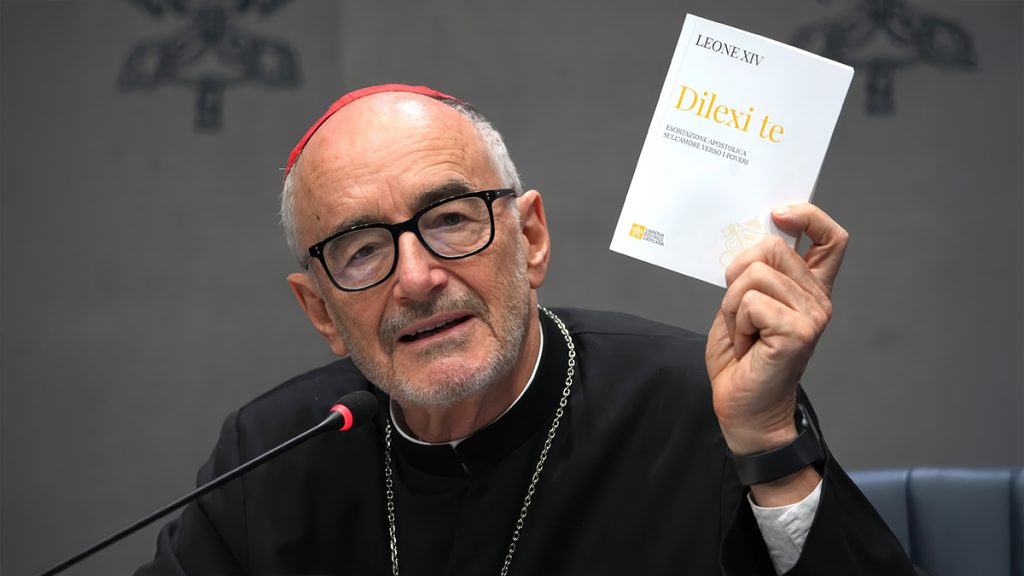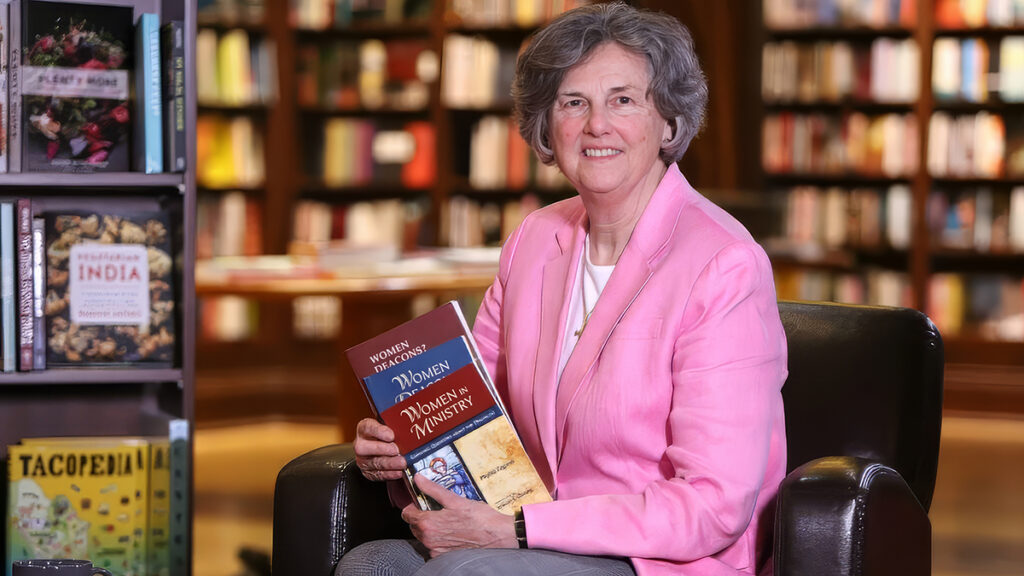Pope Leo XIV is clear in his first formal document: the love of money really is the root of all evils.
At a press conference on Thursday (Oct. 9), the Vatican presented his apostolic exhortation, Dilexi Te (I have loved you). More a pastoral presentation than an expansive theological treatise, it criticises the expansion of wealth to the detriment of the poor of the world.
A blunt assessment of global economics
Now part of the church’s official magisterium, Dilexi Te is frank in its view of world economics. It singles out the “wealthy elite, living in a bubble of comfort and luxury, almost in another world compared to ordinary people.”
That would include Elon Musk, whose potential trillion-dollar pay package Leo criticised previously. The problem, Leo said then, is that priorities are reversed. CEOs earn 600 times what workers do. Worse, wealth is presented as the goal of every human person.

Journalists seek political meaning
At Thursday’s press conference, Vatican reporters asked whether the document was aimed at the treatment of immigrants in the United States and liberation theology.
Cardinal Michael Czerny, prefect of the Dicastery for Human Development, the Vatican department concerned with immigration and human rights, fielded most of these questions.
Not politics, but gospel witness
Responding in English, Czerny explained that it would be a mistake to read the document in political terms. Instead, it should be received as it is—an apostolic exhortation aimed at helping the church understand the gospel in light of world events.
Czerny was especially clear in describing the problem of “structural sin,” evils for which everyone in society shares some responsibility.
He presented the international drug trade as an example of how it has seeped into every area of personal and political life, weighing a “crushing burden of crime and evil” in the world.
The overlooked question of women
Overlooked in the press conference was Leo’s recognition in his exhortation that women bear the brunt of every blow slammed upon the poor.
Largely quoting Pope Francis, the exhortation reads:
Let us not forget that “doubly poor are those women who endure situations of exclusion, mistreatment, and violence, since they are frequently less able to defend their rights. Even so, we constantly witness among them impressive examples of daily heroism in defending and protecting their vulnerable families.”
While significant changes are underway in some countries, “the organization of societies worldwide is still far from reflecting clearly that women possess the same dignity and identical rights as men. We say one thing with our words, but our decisions and reality tell another story.”
A mirror for the church
But as Leo strives to bring the gospel to the world, can he not see that the world questions the way the church regards women?
Czerny affirmed that Dilexi Te is “the magisterium of the church,” or official church teaching. But where does the church affirm women, except with words and managerial appointments?
Does Leo speak about the church when he repeats Francis’ affirmation, “We say one thing with our words, but our decisions and reality tell another story”?
An invitation to listen
Czerny said, “The world is badly arranged.” One might add the way the church is so arranged as well.
As Czerny also said, “Let him (or her) who has ears, hear.”

- Phyllis Zagano, Ph.D. is senior research associate-in-residence and adjunct professor of religion at Hofstra University, Hempstead, New York. First published in RNS. Republished with permission.

